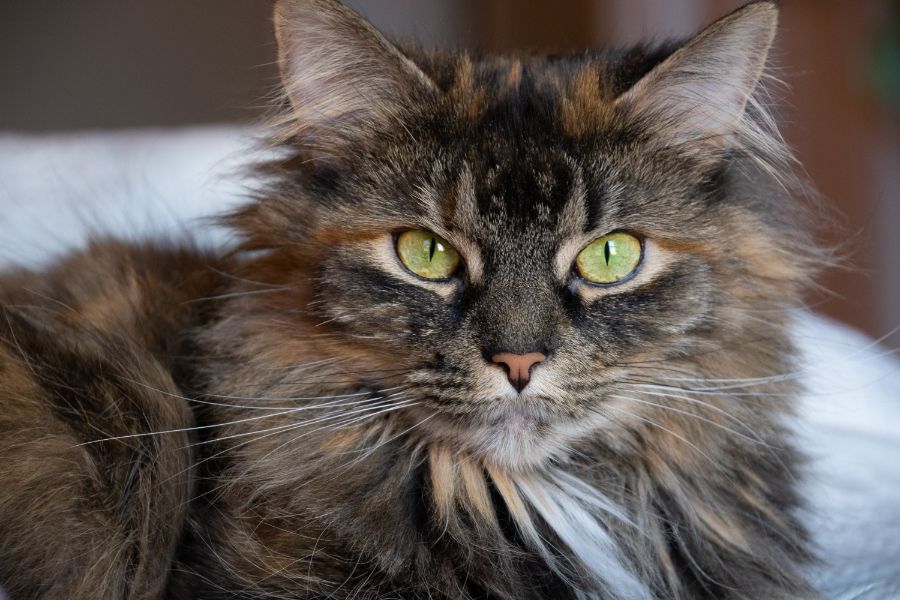When It Comes to Senior Cat Care, Less Is Not More

As cats age it may seem like they require less attention, exercise, and gear, but this couldn’t be further from the truth.
Of course, kittens and younger cats have greater demands regarding sterilization, microchipping, vaccinations and litter box training. But just because their personal needs change as they grow older, it doesn’t mean that the health of senior cats can be placed on the back burner.
With bi-annual senior cat care exams we can move quickly to prevent and derail potential illness. and keep your kitty happy and active.
The Timeline
Even though most 7 year old cats are incredibly spry, active and tuned into their people and surroundings, they are actually considered senior cats. They may behave like versions of their younger selves, and yet disease could be lurking just below the surface. As a result, we increase physical exams and certain diagnostic tests from once to twice a year.
Planning for the Future
Age-related illness can develop quickly and relatively quietly. In fact, many devoted owners of cats are surprised to learn their senior cat is battling disease. This can be partially explained by the feline’s natural inclination to mask any signs of weakness or illness. As a result, it remains a high priority to be on the lookout for even slight shifts in behavior or habits.
Senior Cat Care
Cats age faster than we do, so waiting an entire year between appointments can reduce a proactive approach to long term senior cat care. In general, please be on the lookout for any of the following symptoms, and contact us for an appointment:
- Vomiting or diarrhea
- Lethargy
- Weight loss
- Changes in eating or drinking routines
- Increased thirst and urination
- Litter box changes
- Vision changes
- Decreased mobility or agility
- Sleep changes
- Unkempt coat
- Dry or brittle nails
- Stinky breath
- Social withdrawal
Tracking symptoms can lead to early detection and effective treatment. Leaving these alone may result in full-fledged emergencies or life-threatening illness.
Prevention and Management
We are passionate about working closely with cat owners to establish senior wellness, prevent disease, and manage age-related illnesses. We closely examine their weight and body condition, coat, eyes, ears, and mouth, circulatory system, thyroid function, abdomen, joints and muscles, lungs and nose, and take into account their full history of routine habits and behaviors.
As they age, cats can be susceptible to any of the following diseases:
- Kidney disease
- Diabetes
- Osteoarthritis
- Thyroid disease
- Cancer
- Hypertension
- GI issues
- Cognitive dysfunction
Feline Pain
Cats feel the effects of aging like we do and can be victims of pain and discomfort. Working together we can help reduce or manage pain with prescription medications. Adding comfort measures to their environment is key. Reducing fall or slip risks is equally important.
Teeth and Gums
Periodontal (gum) disease is a common diagnosis in senior cats. Dental disease is a gradual process but can be incredibly painful. Please let us know if you need help addressing their dental needs at home. It may be time to schedule a cleaning under anesthesia, complete with digital x-rays and other treatments to support oral health.
Here For You
Our veterinarians and team members are always here to help you and your cat. If you have further questions about the importance of senior cat care please let us know.
